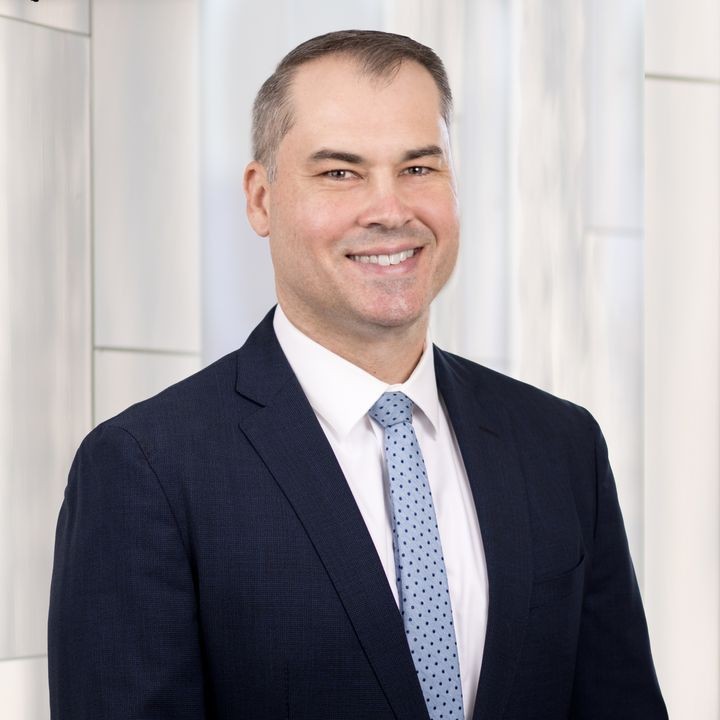FCA Complaint Based on PPP Information Pulled from PandemicOversight.gov Website Barred
Client Alert | 4 min read | 09.03.24
On August 5, 2024, in United States ex rel. Relator LLC v. Howard D. Kootstra and Golden Empire Mortgage, Inc., Case No. 1:22-cv-00924-TLN-CDB (E.D. Cal.), the District Court for the Eastern District of California granted a motion to dismiss allegations that a mortgage lender made false or fraudulent statements on its Paycheck Protection Program (PPP) application in violation of the False Claims Act where the relator could not overcome the FCA’s public disclosure bar.
Relator LLC filed a complaint in July 2022 alleging that the defendants were ineligible to receive PPP loans as a mortgage lender and knowingly made false or fraudulent statements on their PPP application in violation of the FCA. DOJ declined to intervene in October 2023, after which the complaint was unsealed.
Subsequent to unsealing, the defendants moved to dismiss all claims on the basis of the FCA’s public disclosure bar as well as failure to satisfy Rules 12(b)(6) and 9(b). The court dismissed, finding that the public disclosure bar was triggered because the following three prongs were satisfied and Relator LLC was not an original source of the information:
Prong 1: Disclosure Occurred through Channels Contemplated by the Statute
The defendants argued that the public information about its PPP loan on PandemicOversight.gov qualified as both a “federal report” and as “news media.” In response, the relator disputed only whether the site was “news media”—it apparently did not challenge the assertion that it was a “federal report.” The court concluded that PanedemicOversight.gov gave information, including but not limited to “the borrower’s name, location, business type, industry, business age, lender, date the PPP loan was approved, loan amount, spending category, amount forgiven, number of loans, and jobs reported” and, as such, the site was a “federal report.” (The court ruled it did not need to reach the question of whether PandemicOversight.gov is also “news media.”)
Prong 2: Disclosure Was Public
The court easily concluded that PandemicOversight.gov is public.
Prong 3: Relator’s Action Is Substantially the Same as the Transaction Publicly Disclosed
In order to satisfy this prong, the substance of the disclosure “need not contain an explicit ‘allegation’ of fraud, so long as the material elements of the allegedly fraudulent ‘transaction’ are disclosed in the public domain.” While the parties agreed that PandemicOversight.gov does not disclose an explicit “allegation” of fraud, they disagreed about whether the site discloses that the defendants were ineligible to receive a PPP loan. The court ultimately agreed with the defendants that both the status as a mortgage lender and the receipt of a PPP loan were disclosed on PandemicOversight.gov.
(As another way to think about “substantial similarity,” the court also considered whether the government was on notice to investigate the fraud before the relator filed his complaint. Here, the court concluded that the government possessed all the relevant information to investigate the alleged fraud before the relator filed the complaint.)
Defense: Original Source
Under the FCA, an “original source” is an individual who “has knowledge that is independent of and materially adds to the publicly disclosed allegations or transactions, and who has voluntarily provided the information to the Government before filing an action under this section.” In this case, the court noted that Relator LLC failed to argue that it is an "original source" for purposes of circumventing the public disclosure bar.
For these reasons, the court dismissed Relator LLC’s complaint, albeit with leave to amend (within 30 days).
Takeaway from the Golden Empire Mortgage Decision
Read broadly, Golden Empire Mortgage stands for the proposition that relators relying solely on publicly available information published by the government about PPP loans is sufficient to trigger the FCA’s public disclosure bar, and that absent independent or “insider” information, a relator may be unable to establish that it is an original source. As the number of whistleblower-initiated PPP FCA cases alleging wholesale ineligibility for the loan continues to rise, other PPP borrowers who are or will soon become defendants may find this decision helpful.
There is one interesting caveat though. For the court to conclude that PandemicOversight.gov publicly disclosed substantially the same transaction as the fraud alleged in the complaint, the court relied upon the fact that the defendants had identified NAICS Code 522292 on its PPP application, signifying it was a lending company that used real estate as collateral, which was included on PandemicOversight.gov. There was quite a bit of confusion around NAICS code identification—particularly for the first tranche of PPP borrowers, as NAICS codes were not even required in the initial PPP loan application. Where a relator does not accept at face value the NAICS code identified on PandemicOversight.gov, the public disclosure bar would potentially not apply in the same fashion as in Golden Empire Mortgage.
Contacts
Insights
Client Alert | 3 min read | 02.27.26
On February 17, 2026, the U.S. Equal Employment Opportunity Commission (EEOC) filed a complaint against Coca-Cola Beverages Northeast, Inc., in the United States District Court for the District of New Hampshire, alleging that the company violated Title VII of the Civil Rights Act of 1964 (Title VII) by conducting an event limited to female employees. The EEOC’s lawsuit is one of several recent actions from the EEOC in furtherance of its efforts to end what it refers to as “unlawful DEI-motivated race and sex discrimination.” See EEOC and Justice Department Warn Against Unlawful DEI-Related Discrimination | U.S. Equal Employment Opportunity Commission.
Client Alert | 6 min read | 02.27.26
Client Alert | 4 min read | 02.27.26
New Jersey Expands FLA Protections Effective July 2026: What Employers Need to Know
Client Alert | 3 min read | 02.26.26







